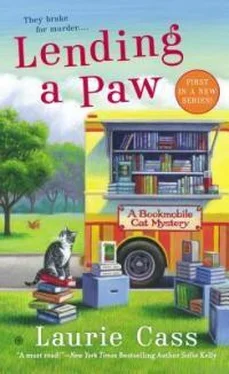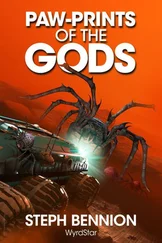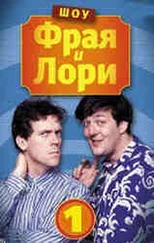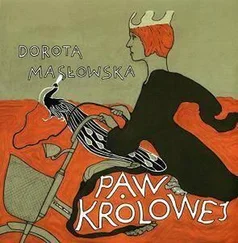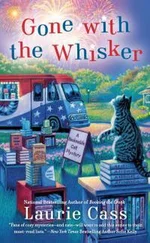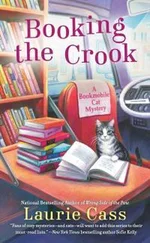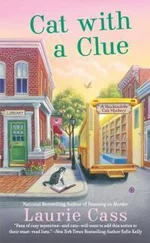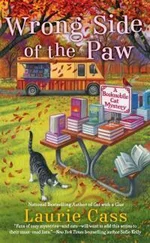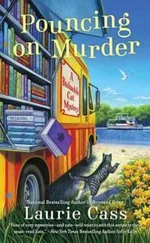“Well.” I gave Eddie a squeeze and deposited him on the passenger’s seat. “It’s up to the police now. They’ll figure out who killed Stan and—”
“Mrr!”
“What do you mean, ‘mrr’? That’s what the police do. They figure out who the bad guys are and put them in jail.” While I’d never actually seen Eddie roll his eyes, he managed to give a good impression of doing so.
“Cut that out.” I thumbed a lever on the driver’s seat and rotated it around to face the front window. “I’m sure the sheriff’s detectives are competent and experienced. They’ve probably investigated lots of deaths.”
Eddie flopped himself lengthwise onto the seat and looked at me sideways.
“Don’t look at me like that,” I told him. “There are thousands of people in Tonedagana County. Tens of thousands.” Almost forty thousand at the last census count. “Dozens, maybe hundreds of people in the county die each year.” Eddie opened his mouth, but I jumped in fast. I didn’t really think he understood what I said, but he gave such a good impression of doing so that I’d fallen into the habit of pretending that he did.
“Okay, sure, there aren’t many murders here.” The only one I could remember in the three years I’d lived in Chilson had started as a bar fight and had ended sadly with dozens of onlookers. Not much to investigate. “But they still have to have training. And maybe the detectives are former city detectives with twenty years of experience each and have solved hundreds of murders between them.”
It was possible. Lots of people up here came from somewhere else. I did. Aunt Frances did. My boss did. Almost all of my summer neighbors did. Tom, the owner of the bakery, did. The guy who ran the hardware store did. It only followed that the county sheriff’s office contained a lot of downstate transplants.
I started the engine. “It’ll be okay, Ed. They’ll find Stan’s killer, I’m sure of it.”
He looked at me as if I was the stupidest human in the universe.
“They will,” I told him.
“Mrr,” he said, and closed his eyes.
• • •
The roads were wet and strewn with sticks and leaves. I turned on the headlights. Used the brakes cautiously. Avoided deep puddles. Drove slowly.
As a result, it took forever to get back to Chilson. I came in the back way through town to avoid the burgeoning summer traffic, and around the back of the library. I hit the garage door opener and turned on the nifty remote-camera screen that was not only invaluable in helping me back up, but was also very helpful when edging into tight places.
Just as we were about to nose into the garage I checked the side mirrors . . . and saw a fiftyish man, feet standing wide, fists on his hips. The frown on his face was fierce enough to create deep creases around his mouth.
What was Stephen doing out here? To the best of my knowledge, he’d never come within spitting distance of the bookmobile. So why . . . ?
My boss made a come-out-and-talk-to-me gesture. If I grabbed Eddie, would I be able to put him in his cabinet without Stephen noticing? Not a chance, not with these big windows. I put on the air brakes, told Eddie to lay low, and scooted outside to where my boss was waiting.
“Hey, Stephen. What are—”
He cut into my greeting. “You’re two and a half hours late.”
Two hours and nineteen minutes, but who was counting?
“Don’t tell me there’s something wrong with the bookmobile.” He squinted at the vehicle. “Mechanical breakdowns happen regularly, I understand.”
And suddenly, I understood, too. Stephen positively wanted the bookmobile to be too expensive for the library to run. If he could prove that it cost more than the operations budget had estimated, he’d find a politically palatable way of getting rid of it. Find it a nice home somewhere else, he’d say, smiling a very annoying smile. We’ll get only pennies on the dollar, but that’s better than nothing.
“The bookmobile is fine,” I said. “It’s—”
“How many people showed up at the first stop?”
The twins. The princess. Ethan and Eddie. So long ago, yet less than twelve hours in the past. It didn’t seem possible. “We had a good turnout. Stephen, there’s something I have to tell you.”
He waved me off. “What I need is details. As this was the maiden voyage, I expect that things didn’t go as smoothly as you’d hoped.”
“Okay, but first I have to—”
Stephen held up a warning finger. “Am I or am I not your supervisor?”
“Yes, but—”
“Then give me the information I need.” He sighed. “Minnie, you are a fine employee, but you have a bad habit of reprioritizing to your own satisfaction. When will you learn that you don’t always know best? Not even I know best, not all the time, and I have almost thirty years of experience as a librarian. Experience counts, Minnie.”
Uh-oh. Stephen had moved into Mentor Mode and it would take drastic measures to get him out.
“Yes, experience.” He nodded to himself. “Someday you’ll know what I’m talking about. Having great promise is only that, a promise. It’s up to you to learn as much as you can, pay attention as much as you can. Only then will it be possible for you to—”
“Stan Larabee is dead.”
Stephen’s mouth kept moving, but nothing came out.
“We . . . I found him in a farmhouse near my last stop. I called 911 right away, but it was too late.”
“Stan Larabee? You’re sure?”
I nodded, afraid to speak for fear I’d break down into wordless sobs.
“Larabee?” Stephen whispered, his eyes stretched wide. “Is dead?”
I looked at him. “Are you okay? Maybe you should sit down.” I reached up for the door latch, opened it, and saw Eddie sitting at the top of the stairs. I slammed the door shut. “On second thought,” I said brightly, “let’s get you into the library. You’ll be more comfortable there.”
“Stan’s gone?” Stephen’s voice was tight. “He can’t be dead. Can he?”
“Yes, and it’s a little worse than that. He—”
“Worse?” Stephen’s mouth twisted into a crooked smile. “Worse, she says.” He barked out an odd choking kind of laugh and staggered away, muttering to himself, “She thinks it could be worse. Worse!”
I followed him for a few steps, but he seemed strong enough, just not very steady. I watched as he made his way around the corner of the library, walking an erratic zigzag path bounded on one side by the building, bounded on the other by an invisible wall that he kept reaching up to touch. The last thing I heard before he went out of view was a final shout of frenetic laughter. “Worse!”
“Well,” I said. “That was weird.”
And I climbed back into the bookmobile to tuck it in for the night.
• • •
By the time I’d finished at the library and carried a squirming Eddie home in the backpack, I was ready to tuck myself in. After taking a quick shower, I fixed myself a comforting dinner of baked macaroni and cheese with bits of bacon tossed in, slapped together a salad so I’d be able to tell my mother I was eating vegetables, and ate in the houseboat’s dining booth. The clouds had cleared off and it had turned into a beautiful, cool northern Michigan evening, but I didn’t feel up to talking with my neighbors.
The marina crowd was a gregarious bunch, full of bonhomie and cheer, and on a normal Friday night I’d be joining in the fun. But tonight wasn’t normal. Even Eddie was acting out of sorts. Eddie usually spent evenings perched on the flat dashboard above the boat’s steering wheel, watching the boat traffic and the seagulls and whatever the neighbors might be doing, with occasional yowly commentary. Tonight, he stuck close to me.
Читать дальше
